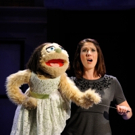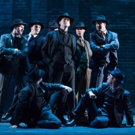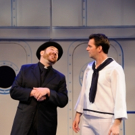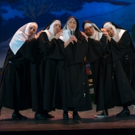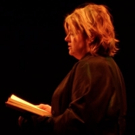Robert Barossi - Page 4

Robert Barossi has worked in just about every possible job in professional theater, from actor to stage manager to company manager to box office and house manager. This has included time spent immersed in the theater and arts scenes in places like Philadelphia, D.C., Boston and Rhode Island. He has also been a staff writer for Motif Magazine in Rhode Island, writing reviews, previews and features, for six years, leaving the publication just recently. Though not working in professional theater currently, he continues to work on being an aspiring playwright and getting to as much theater as possible.
April 7, 2017
If you caught the recent touring productions of Pippin or Motown: The Musical at Civic Center Music Hall, you've also been part of the first season for OKC Broadway presenting Broadway productions at the Music Hall. This young organization, formed through a partnership between the Civic Center Music Hall Foundation and the Nederlander Organization, is led by Elizabeth Gray, who is both the General Manager of OKC Broadway and Executive Director of the Civic Center Foundation. I spoke with Ms Gray about how OKC Broadway came to be, what audiences can expect in the near and long-term future, and how she sees OKC Broadway fitting into the arts community here in Oklahoma City.
April 3, 2017
The musical theatre scene is filled with adaptations of Hollywood movies, to the point of overflowing. Some of these musical stage versions of popular movies have not translated well (Ghost and Flashdance, I'm looking at you). On the other hand, a number of them have gone on to become highly successful Broadway musicals, winning a number of Tony awards as well as critical and audience raves. Dirty Rotten Scoundrels is part of the latter group and is now getting a breezy and extremely fun production at Sooner Theatre in Norman.
April 3, 2017
Adapting any children's book for the stage is likely to be a tricky proposition. By their very nature, kids' books are filled with challenging settings and characters, from talking animals to fantastical locations to entire magical worlds that come right out of the most vivid and playful imaginations. It's no different for Roald Dahl's classic James and the Giant Peach. Having said that, it's hard to imagine any production of a stage version being as well-produced and successfully achieved as the one currently playing at the Lyric Theatre's Plaza Theatre.
March 6, 2017
Let's face it, long bus rides can be an at-times uncomfortable and awkward journey. The seats are not always conducive to comfort and if there are lots of people, it's going to get cramped. But, as the saying goes, it's not about the journey, it's about the destination, and while the ride might be bumpy, getting to our destination is often rewarding and exciting. William Inge's Bus Stop, now playing at Jewel Box Theatre, is a bit like a long bus journey. The ride might have its ups and downs, but it's the destination, the pay-off, that makes it a journey well worth taking.
December 7, 2016
It's true that there are countless musicals from yesteryear that are, and always will be, timeless classics. On the other hand, there is also a constant flow of new material being created, which runs the gamut in terms of quality and success. Many of these new works do not succeed the way that the age-old classics do. Others, though, become almost instant classics in their own right as they find critical and popular acclaim. A Gentleman's Guide to Love & Murder is that kind of show and the current touring production at Providence Performing Arts Center demonstrates just how fantastic this very young musical really is.
December 5, 2016
Movies to musicals and musicals to movies. It's been a regular occurrence for years, although it seems that recently it's been happening more and more. Sometimes, the transition from movie to musical, or vice versa, works perfectly and can be pulled off without a hitch. Sometimes it fails miserably. The musical version of the 1954 classic holiday movie White Christmas is neither of these things. It's not spectacular, nor is it a failure. It's uneven, at best, something that is made worse by an uneven and surprisingly disappointing production currently running at Ocean State Theatre Company.
November 7, 2016
In the five years since arriving in their brand new space in Warwick, Ocean State Theatre Company has quickly become among the top tier of theater companies in our region, consistently producing plays and musicals of the highest quality. That trend continues with their current riveting production of John Patrick Shanley's Pulitzer Prize-winning play Doubt: A Parable.
October 24, 2016
There is certainly something worthwhile about theater that pushes boundaries, tries new things, experiments and offers unique way to tell a story. The art form, in general, benefit from that kind of work. It benefits from work that expands the minds of an audience and tells them a story in a way that challenges them. On the other hand, Wilbury Group's second show of the year, 10,000 Things by Erik Ehn, proves how this kind of theater can instead leave an audience bored, confused or both.
September 20, 2016
There is a current trend in Hollywood to combine movies in a way that creates a 'cinematic universe.' This allows studios to create a number of movies that are all connected and can be tied together, usually because of a shared world of characters, think Marvel superheroes or the famous Universal Studios movie monsters. In an ingenious sort of experiment, Wilbury Group is kicking off its season with a production that creates a kind of 'theatrical universe,' by linking together three plays that would otherwise be thought of us very different and entirely separate. With masterful execution, Wilbury manages to create a fascinating and frightening world in which we can really believe these three disparate works might coexists.
September 19, 2016
Epic Theatre Company begins its fifth full-length season with an attempt to walk that fine line, presenting the Rhode Island premiere of Anne Nelson's play The Guys. A simple, straightforward story, Nelson's work offers us only two characters, two people who would be complete strangers if not for the events in New York City on that day. Joan is a New York City writer, and transplant from Oklahoma, who is at the center of the play, often breaking into monologues to talk to address the audience directly about the events of the day and how it impacted her and everyone else. Nick is a Fire Captain, one who lost a number of men in the towers during the attacks. He arrives at Joan's doorstep asking for a very specific form of help: he needs her to help him write the eulogies for the men who died while under his command.
August 8, 2016
There are certainly many strange and unusual musicals appearing regularly on stages in New York City and across the country. Avenue Q does not shy away from being something different and unique. Rather, it proudly owns every bit of its wonderful uniqueness and accompanying hilarity. From songs about internet porn to full-frontal puppet nudity, this is a musical that constantly surprises, bringing undeniable laughs along the way. And it's hard to imagine that any theater could create as perfect a production of Avenue Q as the one currently running at Ocean State Theatre Company.
July 22, 2016
Promising to be bigger than ever, and not just because of added performance venues, the Providence Fringe Festival returns for its third year on July 26. I spoke with Kate Kataja of The Wilbury Theatre Group, which has produced the festival in each of its first three years, about her role and what audience's can expect at this year's Fringe.
June 16, 2016
It's always a challenge to find a fresh, new, innovate way to tell a story. It seems at times like every story out there has already been told so the only option is to tell it again, but tell it differently. Use a storytelling technique that excites and engages the audience, and maybe it won't even matter what the story is. That idea, while it might sound good, just doesn't work in reality, as demonstrated by the current touring production of If/Then, now playing at Providence Performing Arts Center. The interesting way of telling the story just can't mask the fact that the story being told is incredibly ordinary, unoriginal and dull.
June 2, 2016
Going into any play, movie, television show, etc., there are certain expectations. And certain things that the audience will be asked to buy into, to embrace. If you're going to see a horror movie, expect blood and gore. If you're seeing a Tennessee Williams play, expect realism and southern drama. And if you are seeing the Broadway musical Bullets Over Broadway at Providence Performing Arts Center, expect silliness, fun, little that's grounded in reality and some solid entertainment.
May 9, 2016
Storytelling is something that, fundamentally, defies definition. Who is to say how a story should best be told? How many different ways have stories been passed down over the centuries? Whatever our own preferences are for storytelling forms and devices, there are countless others, often used in successful ways. In its three years of existence, OUT LOUD Theatre has at times defied conventional definitions of storytelling and developed their own unique style. With its spectacular use of that style, their current production of Dracula is a gorgeous example of the company's storytelling prowess, wrapped in a unique and surprising piece of theatrical art.
May 2, 2016
Like any art form, theatrical musicals can run the gamut in tone, style, tenor and execution. You can find everything from dark, serious brooding drama to light-as-a-feather, fluff-filled entertainments. Which is not to say that either side of the spectrum is better or worse than the other, there are highs and lows at both ends of the spectrum. When it comes to the lighter, fluffier fare, there are few as effervescent and entertaining as Cole Porter's Anything Goes, now receiving a top-notch production at Ocean State Theatre Company.
April 12, 2016
FirstWorks has been connecting Rhode Island residents with artistic expressions of all kinds for more than a decade. Their previous Providence International Arts Festival, just one example of their diverse programming, has been rebranded as PVDFest and looks to be even more spectacular this summer. They have also brought a series of incredibly diverse and stunning performances to the stage at The Vets in their Artistic Icons Series, which culminated with an incredible and incredibly moving performance by country singer/songwriter Rosanne Cash.
April 11, 2016
You might be hard pressed to come up with a musical that is or has a sequel. Sequels seem to primarily be the domain of movies, books and perhaps television shows. There is one musical, though, that actually has a number of sequels to its credit. The hit show Nunsense hasn't just spawned one or two follow-ups, it actually has nine shows which are considered sequels or spin-offs of the original. Now, Community Players is presenting the second in that line, Nunsense 2: The Second Coming.
April 4, 2016
While Kristin Chenoweth may best be known for originating the role of Glinda in the Broadway musical Wicked or one of her many film and television roles, the amazingly versatile performer has had a career spanning just about every medium and genre. Chenoweth's work on TV has included The West Wing, Glee and an Emmy Award for Best Supporting Actress in a Comedy Series for her work on Pushing Daisies. In addition to Wicked, she has lit up the stage in Promises, Promises, On the Twentieth Century and You're A Good Man, Charlie Brown, for which she won a Tony. She has also performed concerts to sold-out audiences around the world and has released five studio albums. Now, she arrives on the Providence Performing Arts Center stage with a very special concert performance, accompanied by the Rhode Island Philharmonic Orchestra, all part of PPAC's annual gala event.
March 4, 2016
One might argue that Titus is the perfect kind of play for a bold young company like Burbage Theatre Company. Willing and able to take risks, to go places other theater companies might not be so interested in going. And while there are some high points for Burbage and their production, it seems that they've fallen into the trap of focusing too much on one thing, to the detriment of other important aspects of Shakespeare's work. Primarily, they seem to have spent most of the time perfecting all of that carnage, all the blood and gore, while not spending enough time on perfecting the actual text, the words and language that make up the work and create its true life. As a friend and Shakespearean scholar noted to me, “That's always the danger with Titus, I'm afraid,” and her fears would have been realized in this production.
Videos



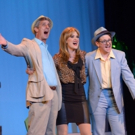
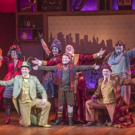
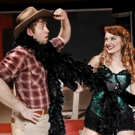
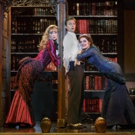
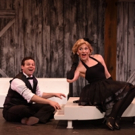
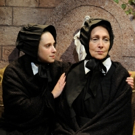
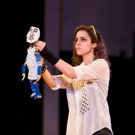
![BWW Review: Wilbury Group Starts the Season With Exciting UI [OO-EY]](https://cloudimages.broadwayworld.com/columnpic7/200200B2A12344-0BC6-B5ED-553676B23A195050.jpg)

